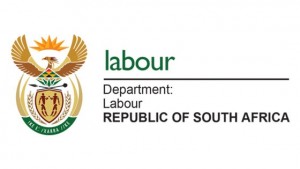
STATUTORY & COMPANY
SECRETARIAL WORK
Statutory & Company secretarial work
New Registrations | Annual Returns | Trusts
Our secretarial department covers a wide array of services particular to the documenting and legalities of company information. The various services (but not limited to) that we offer are as follows:
New Registrations
• Company Registration (PTY)
• Non-Profit Company (NPC)
• Incorporated Company (INC)
Changes to your Company
• Name Changes
• Director Changes
• Shareholder Changes / Issue new share certificates
• Changes to Registered Address
• Conversion of CC to Pty
Annual Returns
• Annual Returns
• Re-Instatement of company
• Deregistration of company
Trusts
• Registration
• Changes to Trustees
• Changes to Trusts
• Deregistration of Trusts
Frequently Asked Questions
1Registering your Company
In terms of the Companies Act, 2008, a company may be registered with or without a company name. When a company is registered without a reserved name, its registration number automatically becomes the company name. This is the quickest way to register a company.
Such a company may transact with a trading (business) name, or may apply to add a reserved name at a later stage. In this case, the company will need to first reserve a name and then apply for a name change, which constitutes a change to its Memorandum of Incorporation (MOI).
There are five types of companies that you can register. If you wish to run a franchise business, you would register a private company. If you wish to register a church, you would register a non-profit company. A private school could be registered as a private company or non-profit company, depending on its objectives. An association of professionals such as lawyers, doctors, civil engineers etc, may be registered as a personal liability company.
Such a company may transact with a trading (business) name, or may apply to add a reserved name at a later stage. In this case, the company will need to first reserve a name and then apply for a name change, which constitutes a change to its Memorandum of Incorporation (MOI).
There are five types of companies that you can register. If you wish to run a franchise business, you would register a private company. If you wish to register a church, you would register a non-profit company. A private school could be registered as a private company or non-profit company, depending on its objectives. An association of professionals such as lawyers, doctors, civil engineers etc, may be registered as a personal liability company.
2Memorandum of Incorporation (MoI)
The most important document governing a company is the Memorandum of Incorporation (MOI). The MOI sets out the rules governing the conduct of the company, as specified by its owners. The Companies Act imposes certain specific requirements on the content of a Memorandum of Incorporation, as necessary to protect the interests of shareholders in the company, and provides for a number of default company rules / alterable provisions, which companies may accept or alter as they wish as long as it is in line with the Companies Act.
Memorandum of Incorporation contains the following information:
• Detail of Incorporators
• Number of directors and alternate directors
• Share capital (maximum issued)
• Content of MOI
Memorandum of Incorporation contains the following information:
• Detail of Incorporators
• Number of directors and alternate directors
• Share capital (maximum issued)
• Content of MOI
3When must you register for VAT?
Compulsory registration: Any person who carries on an enterprise and whose total value of taxable supplies (taxable turnover) exceeds, or is likely to exceed, the compulsory VAT registration threshold, must register for VAT. The threshold is currently R1 million in any consecutive 12-month period.
4What is FICA?
Financial Intelligence Centre Act (Fica)
South Africa has adopted money laundering laws to help it comply with its international obligations to fight organised crime and terrorism.
Fica creates money laundering control obligations for banks and other institutions and professionals, such as estate agents, brokers, attorneys and insurance companies.
South Africa has adopted money laundering laws to help it comply with its international obligations to fight organised crime and terrorism.
Fica creates money laundering control obligations for banks and other institutions and professionals, such as estate agents, brokers, attorneys and insurance companies.
5Unemployment Insurance Fund (UIF)
If you have employees who are employed by you for more than 24 hours per month, you are required by law to register with the Unemployment Insurance Fund (UIF) and contribute towards the Fund. You must deduct and contribute one percent of your worker's gross salary per month, as must your employee. The total contribution is two percent of the worker's gross remuneration.
6Workmen’s Compensation
All registered employers pay an annual assessment fee based on their workers’ earnings and work related risks. Employers who register for and pay their annual Workers Compensation fees are protected from being sued by employees who are injured at work. Employees are protected from financial loss if they are injured at work.
7Skills Development Levy
Employers must pay 1% of their workers’ pay to the skills development levy every month. The money goes to Sector .Education and Training Authorities (SETAs) and the Skills Development Fund to pay for training.
HELPFUL LINKS




